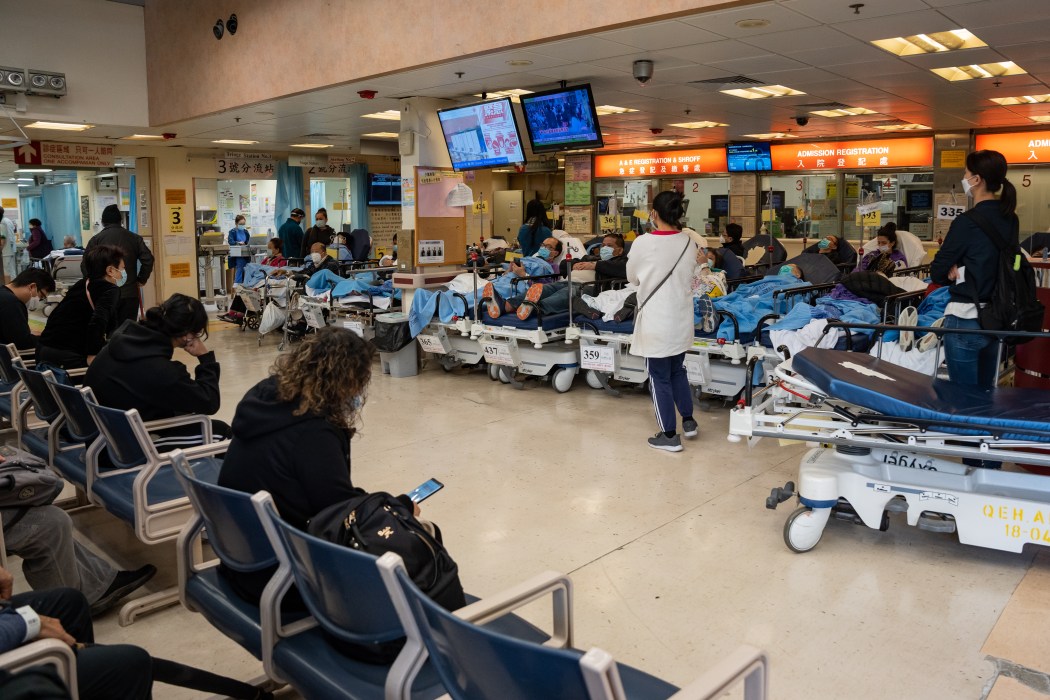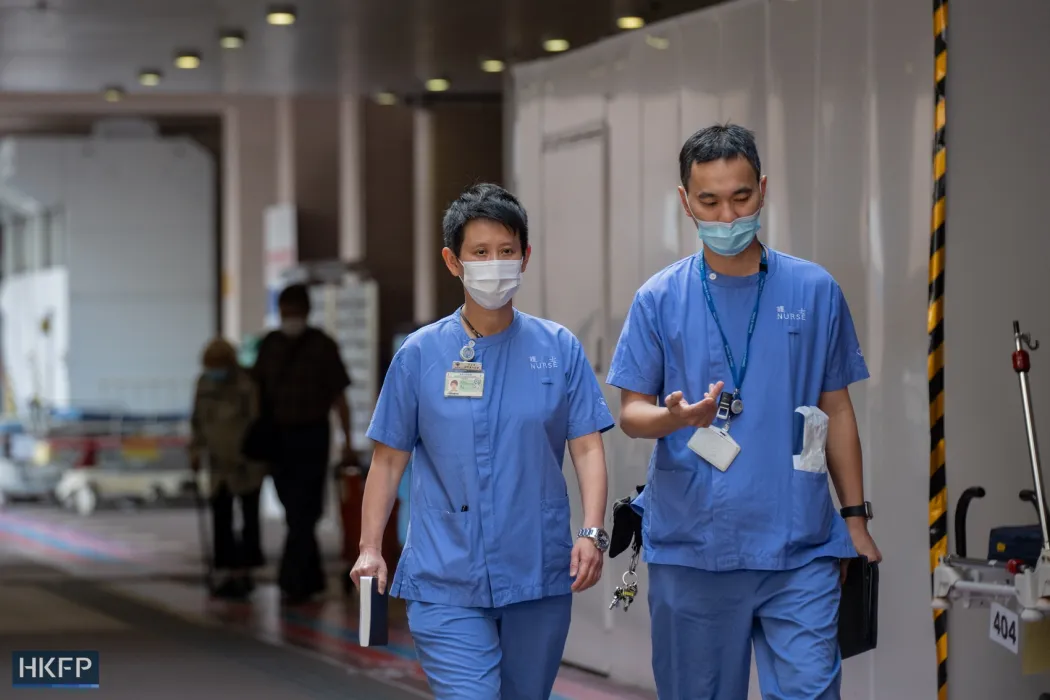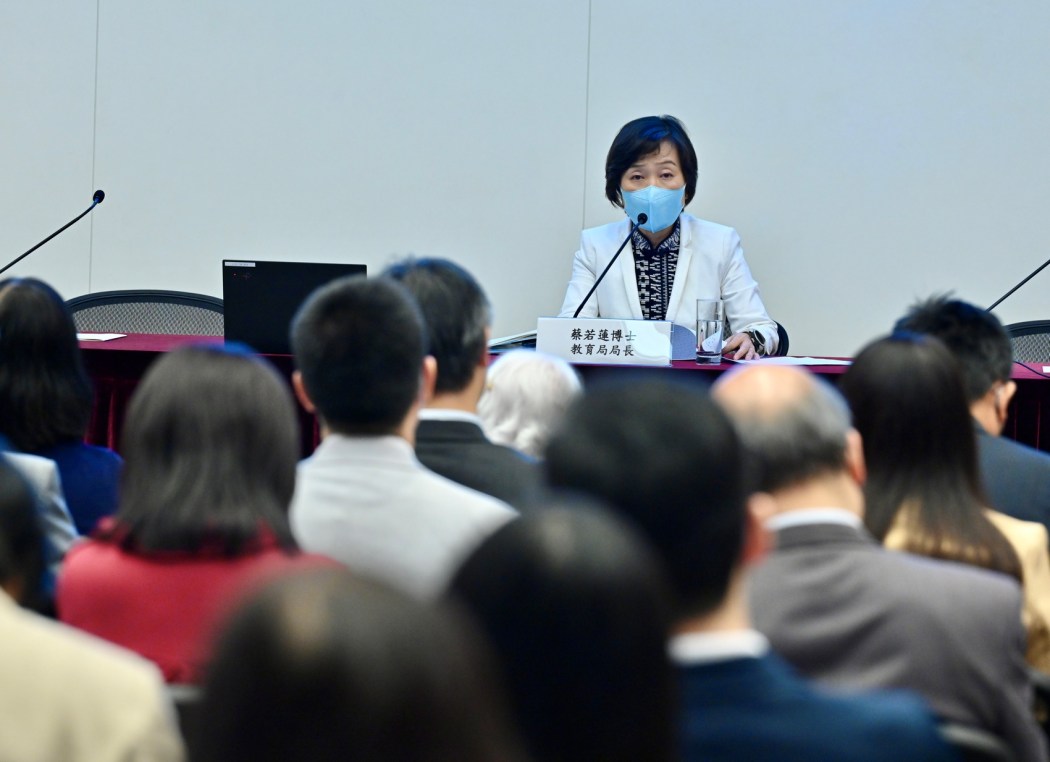Hong Kong’s medical sector lawmaker has said it was “unrealistic” to expect a new medical school to address the manpower crunch in the short term, after the Hong Kong University of Science and Technology (HKUST) proposed establishing the city’s third medical school.

Lawmaker David Lam spoke about HKUST’s plan to open a medical school on an RTHK radio show on Friday.
“Relying on this medical school to solve Hong Kong’s shortage of doctors in the short term is unrealistic. Maybe it might in the long term,” Lam said in Cantonese.
HKUST president Nancy Ip told lawmakers at a meeting on Wednesday that the university intended to establish a medical school in Hong Kong. It would be the city’s third medical school, after the University of Hong Kong and Chinese University of Hong Kong.
Lam said HKUST had yet to present a plan on collaborating with teaching hospitals, where medical students would train.
Hong Kong has long faced a shortage of doctors at public hospitals, an issue exacerbated by an emigration wave amid Beijing’s national security law and strict restrictions during the Covid-19 pandemic.
The Hospital Authority said in late June that the attrition rates of doctors and nurses in the year 2022/23 were 7.1 per cent and 10.9 per cent respectively. Allied health staff, a term referring to health professionals such as occupational therapists, clinical psychologists and dieticians, also saw a high attrition rate of 8.4 per cent.

According to lawmaker Edward Leung Hei, who also attended the meeting, HKUST plans to admit 50 medical students when the “first phase” commences in two to three years. The university hopes to gradually increase its yearly intake to 200 students, he said.
‘Urgent’ demand
In a reply to HKFP, a HKUST spokesperson cited an “urgent” demand for medical services in Hong Kong amid an aging population. The spokesperson added that health technology and biomedical sciences were among key research topics at the university.
Hong Kong has undertaken measures in recent years to tackle the manpower shortage in the medical sector, including relaxing rules for admitting overseas doctors to work in public hospitals. Authorities have also held job fairs in Australia and the UK to attract graduates to work in the city in the past months.
The Hospital Authority said in August that 100 overseas doctors would join the Hospital Authority following its recruitment efforts to address the “urgent situation.”

Among the 100 doctors recruited, around two-thirds were from the UK while the remaining were from countries such as Australia. The first batch of ten doctors started working in Hong Kong in September.
The HKUST’s proposal was backed by other lawmakers as well as the city’s education minister.
Speaking to reporters on Thursday, Secretary for Education Christine Choi said she supported the plan, citing a growing demand for healthcare services as well as Hong Kong’s “developmental needs” under China’s 14th Five-Year Plan, which is Beijing’s national blueprint outlining key policies and goals.
Leung, the lawmaker who was at the HKUST meeting, said in a Facebook post on Wednesday that he had “all along been concerned about healthcare development in Hong Kong.”
He said HKUST planned to allow degree holders to enrol, meaning those who have studied an undergraduate degree unrelated to medicine can study at the medical school.

“[I] believe that for young people who did not study medicine in university, but hope to change fields and become a doctor, this presents an attractive career development path,” he wrote.
Leung added that the university would have “rigorous checks” in place to ensure students meet all requirements and standards.
He also said the university was seeking more resources to set up an innovation and technology park as well as additional student dormitories.
Support HKFP | Policies & Ethics | Error/typo? | Contact Us | Newsletter | Transparency & Annual Report | Apps
Help safeguard press freedom & keep HKFP free for all readers by supporting our team

LATEST FROM HKFP
HKFP has an impartial stance, transparent funding, and balanced coverage guided by an Ethics Code and Corrections Policy.
Support press freedom & help us surpass 1,000 monthly Patrons: 100% independent, governed by an ethics code & not-for-profit.










